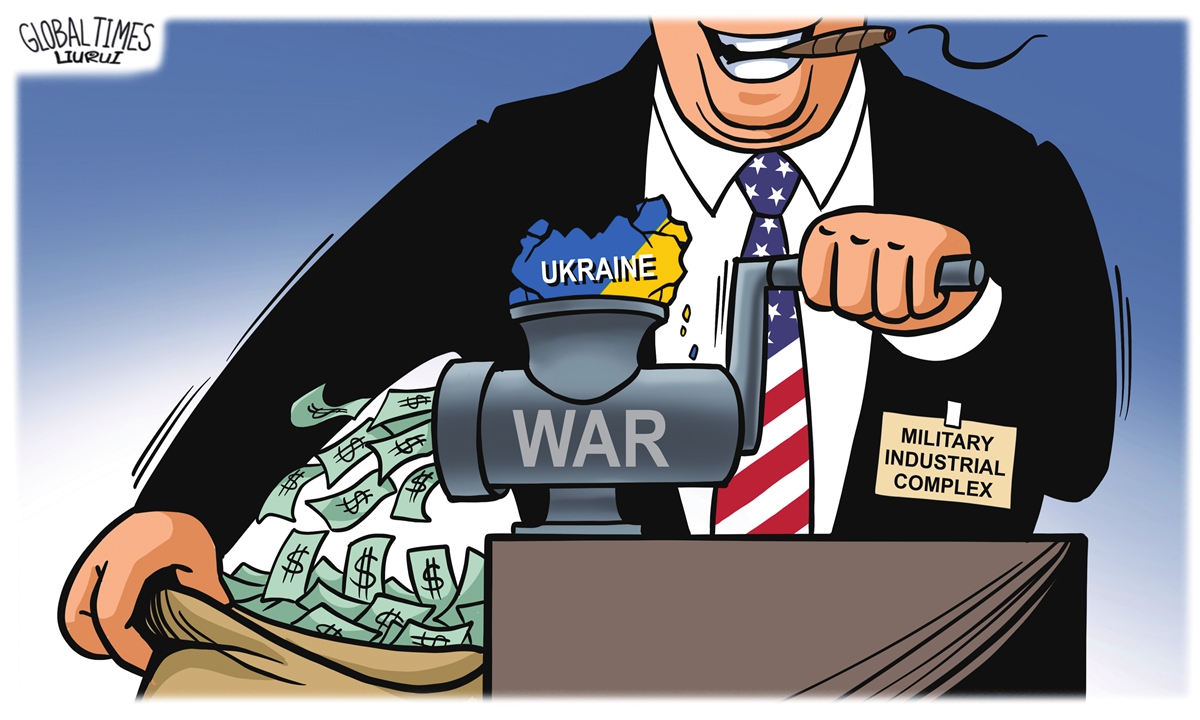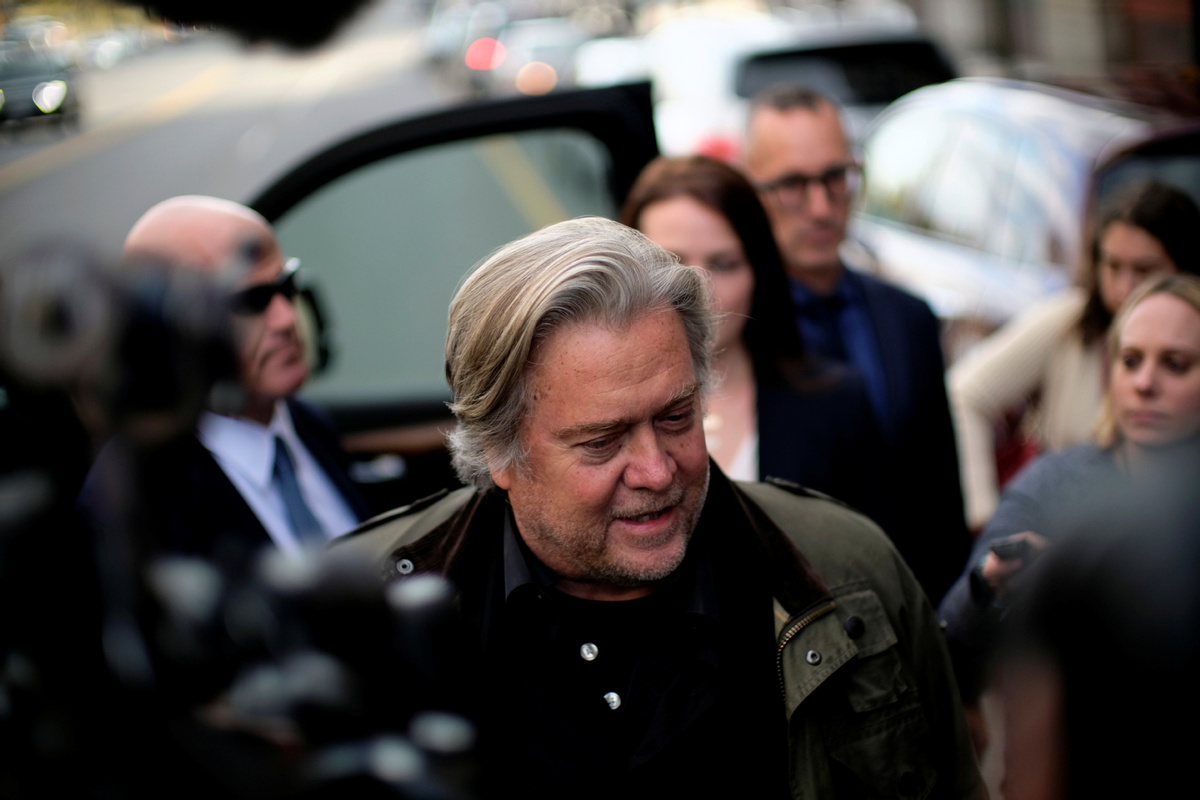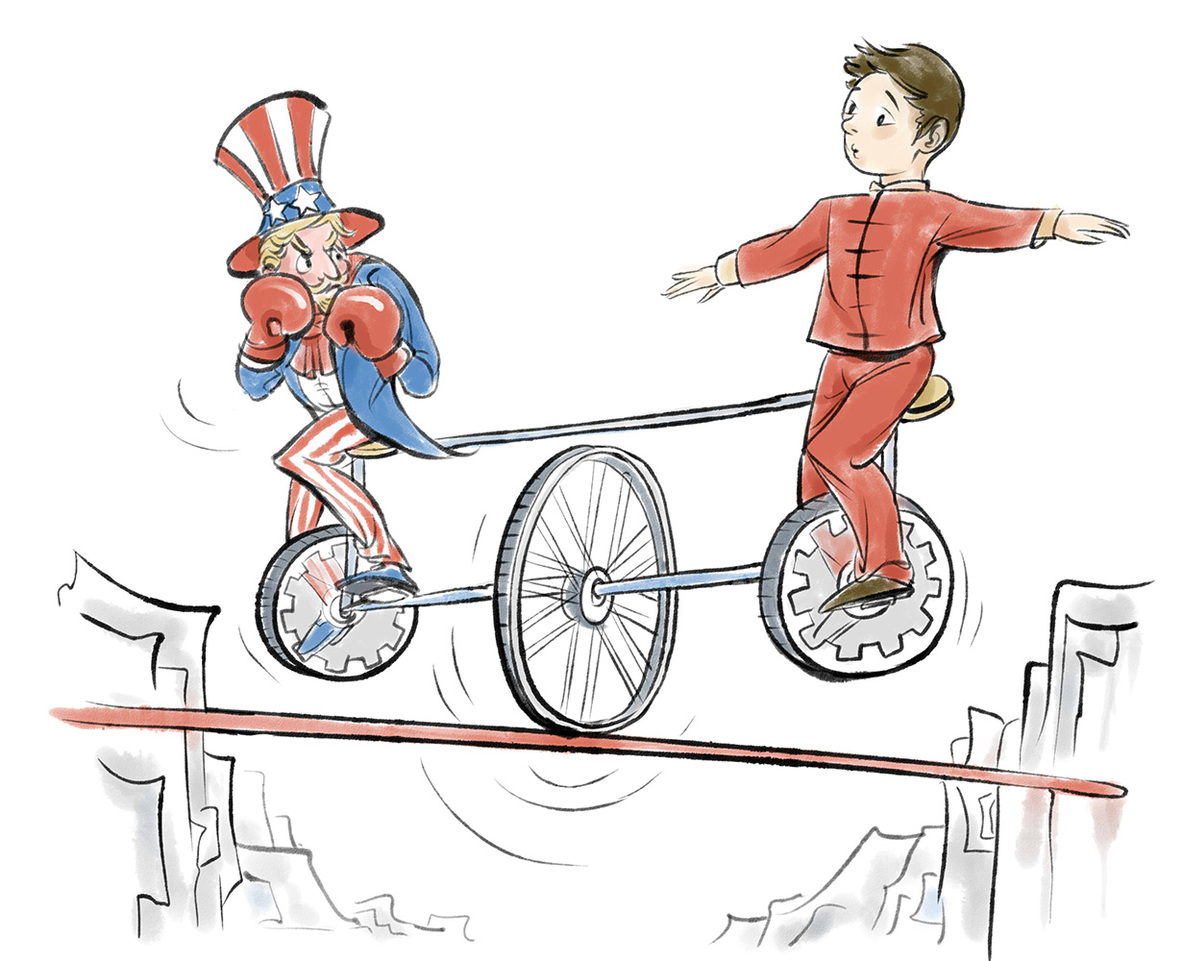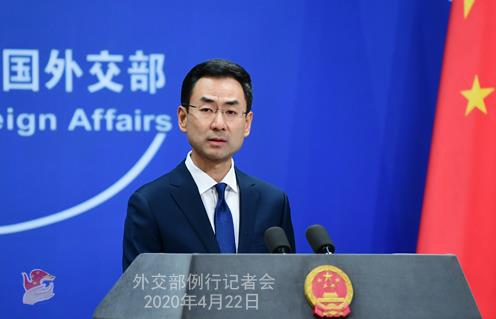Mar 24, 2022,

(Global Times) By March 24, the Russia-Ukraine conflict has lasted one month. All peace-loving people in the world hope that this bloody conflict, which could have been avoided, could end soon. However, the US and NATO, which hold the key to resolving the conflict between Russia and Ukraine, have made no practical moves to end the war. Instead, they are still intensifying contradictions and escalating confrontation, creating obstacles for negotiations between Russia and Ukraine.
US President Joe Biden left for Europe on Wednesday, where he will attend the NATO summit, the G7 summit and the European Council meeting. According to media reports, Biden will work with European allies to coordinate next-stage military assistance to Ukraine and will announce a new round of sanctions against Russia. On the one-month mark of the conflict, Biden carried out his intensive diplomatic offensive in Europe, yet nothing on his agenda is not about adding fuel to the fire.
When touching upon Biden’s European trip, US National Security Advisor Jake Sullivan said that there will be hard days ahead in Ukraine as “this war will not end easily or rapidly.” This is not so much a “judgment” by the US, but a carefully guided direction by Washington. Washington wishes the war will not end, so it can maximize the use of the conflict to gain geopolitical value from it. In other words, it is seeking to benefit from Ukraine’s misfortune.
Because of this, the US and Europe may seem to appear close, but their substantive differences are deepening. While Washington is obsessed with delaying Russia-Ukraine negotiations, Europe wants security and stability. There are emerging anti-war voices in Europe, and these voices include disapproval toward Washington’s arms delivery to Ukraine. More and more Europeans realize that blindly sending arms to Ukraine is heading toward the opposite direction of the security goals they pursue. In addition, the result of long-term extreme sanctions must be that the US gets rich, Europe pays the bill and Ukraine bleeds. Washington can’t hide these petty ideas.
Also because of this, Biden has to “stabilize” Europe when it has wavering intentions. It is not difficult to imagine that Washington will pull out the “transatlantic friendship,” “democratic alliance,” and other small cards from its pockets and distribute them to friends as passes to the world VIP club, using the illusory “honor” to extract high “dues.” Washington also exerts strong pressure on neutral countries that “don’t join the club,” criticizing India for being “shaky” on one hand and sensationalizing China’s “threat” to peace on the other. Isn’t this a typical mafia approach?
As the saying goes, “It is up to the doer to undo the knot.” The Russia-Ukraine conflict is the result of the intensification of the conflict between the US and Russia, and the key to the problem lies in the hands of the US. If Washington really wants the “hard days” of the Ukrainian people not to continue, then why did it choose to “coordinate” with Europe to send weapons to Ukraine and sanction Russia, and refused to talk directly with Russia? The answer is clear: the US does not want real peace talks. That’s why one can see such an absurd scenario: despite knowing where the way out is for the Russia-Ukraine conflict, Washington is still desperately wiping the sign which says “No Thoroughfare” at the end of a blind alley.
Washington has been good at putting on the show – promoting hegemony under the guise of “democracy,” and making a fortune from war in the name of “peace.” Yet it does not mean such an approach will never be outdated. Over time, people will eventually see through it. The evolution of the Russia-Ukraine conflict will prove Washington’s nature as a warmonger










